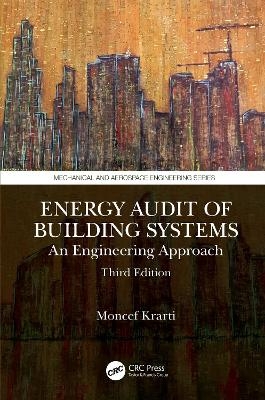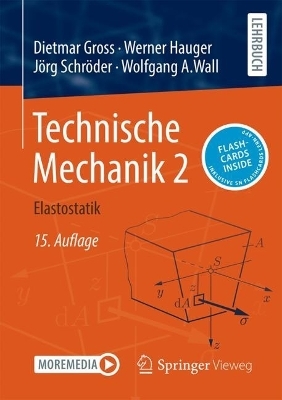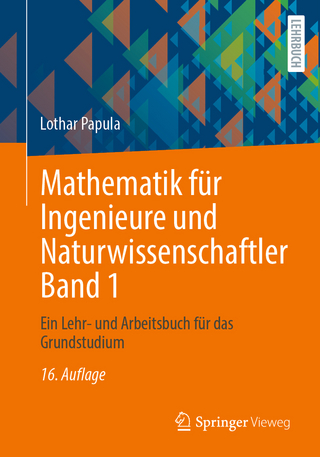
Energy Audit of Building Systems
An Engineering Approach, Third Edition
Seiten
2024
|
3rd edition
CRC Press (Verlag)
978-0-367-61972-5 (ISBN)
CRC Press (Verlag)
978-0-367-61972-5 (ISBN)
Updated to include recent advances, the new edition presents strategies and analysis methods for conserving energy and reducing operating costs in residential and commercial buildings. Auditors, managers, and students will find this to be an invaluable resource for their work.
Updated to include recent advances, this third edition presents strategies and analysis methods for conserving energy and reducing operating costs in residential and commercial buildings.
The book explores the latest approaches to measuring and improving energy consumption levels, with calculation examples and Case Studies. It covers field testing, energy simulation, and retrofit analysis of existing buildings. It examines subsystems—such as lighting, heating, and cooling—and techniques needed for accurately evaluating them.
Auditors, managers, and students of energy systems will find this book to be an invaluable resource for their work.
Explores state-of-the-art techniques and technologies for reducing energy combustion in buildings.
Presents the latest energy efficiency strategies and established methods for energy estimation.
Provides calculation examples that outline the application of the methods described.
Examines the major building subsystems: lighting, heating, and air-conditioning.
Addresses large-scale retrofit analysis approaches for existing building stocks.
Introduces the concept of energy productivity to account for the multiple benefits of energy efficiency for buildings.
Includes Case Studies to give readers a realistic look at energy audits.
Moncef Krarti has vast experience in designing, testing, and assessing innovative energy efficiency and renewable energy technologies applied to buildings. He graduated from the University of Colorado with both MS and PhD in Civil Engineering. Prof. Krarti directed several projects in designing energy-efficient buildings with integrated renewable energy systems. He has published over 3000 technical journals and handbook chapters in various fields related to energy efficiency, distribution generation, and demand-side management for the built environment. Moreover, he has published several books on building energy-efficient systems. Prof. Krarti is Fellow member to the American Society for Mechanical Engineers (ASME), the largest international professional society. He is the founding editor of the ASME Journal of Sustainable Buildings & Cities Equipment and Systems. Prof. Krarti has taught several different courses related to building energy systems for over 20 years in the United States and abroad. As a professor at the University of Colorado, Prof. Krarti has been managing the research activities of an energy management center at the school with an emphasis on testing and evaluating the performance of mechanical and electrical systems for residential and commercial buildings. He has also helped the development of similar energy efficiency centers in other countries, including Brazil, Mexico, and Tunisia. In addition, Prof. Krarti has extensive experience in promoting building energy technologies and policies overseas, including the establishment of energy research centers, the development of building energy codes, and the delivery of energy training programs in several countries.
Updated to include recent advances, this third edition presents strategies and analysis methods for conserving energy and reducing operating costs in residential and commercial buildings.
The book explores the latest approaches to measuring and improving energy consumption levels, with calculation examples and Case Studies. It covers field testing, energy simulation, and retrofit analysis of existing buildings. It examines subsystems—such as lighting, heating, and cooling—and techniques needed for accurately evaluating them.
Auditors, managers, and students of energy systems will find this book to be an invaluable resource for their work.
Explores state-of-the-art techniques and technologies for reducing energy combustion in buildings.
Presents the latest energy efficiency strategies and established methods for energy estimation.
Provides calculation examples that outline the application of the methods described.
Examines the major building subsystems: lighting, heating, and air-conditioning.
Addresses large-scale retrofit analysis approaches for existing building stocks.
Introduces the concept of energy productivity to account for the multiple benefits of energy efficiency for buildings.
Includes Case Studies to give readers a realistic look at energy audits.
Moncef Krarti has vast experience in designing, testing, and assessing innovative energy efficiency and renewable energy technologies applied to buildings. He graduated from the University of Colorado with both MS and PhD in Civil Engineering. Prof. Krarti directed several projects in designing energy-efficient buildings with integrated renewable energy systems. He has published over 3000 technical journals and handbook chapters in various fields related to energy efficiency, distribution generation, and demand-side management for the built environment. Moreover, he has published several books on building energy-efficient systems. Prof. Krarti is Fellow member to the American Society for Mechanical Engineers (ASME), the largest international professional society. He is the founding editor of the ASME Journal of Sustainable Buildings & Cities Equipment and Systems. Prof. Krarti has taught several different courses related to building energy systems for over 20 years in the United States and abroad. As a professor at the University of Colorado, Prof. Krarti has been managing the research activities of an energy management center at the school with an emphasis on testing and evaluating the performance of mechanical and electrical systems for residential and commercial buildings. He has also helped the development of similar energy efficiency centers in other countries, including Brazil, Mexico, and Tunisia. In addition, Prof. Krarti has extensive experience in promoting building energy technologies and policies overseas, including the establishment of energy research centers, the development of building energy codes, and the delivery of energy training programs in several countries.
1. Overview of Energy Audits. 2. Utility Rate Structures. 3. Economic Analysis of Energy Projects. 4. Building Energy Analysis Tools. 5. Building Electrical Systems. 6. Building Envelope Systems. 7. Secondary HVAC Systems. 8. Primary HVAC Systems. 9. Distributed Energy Systems. 10. Energy Management Control Systems. 11. Smart Building Energy Systems. 12. Domestic Hot Water Systems. 13. Retrofit Analysis for Communities and Cities. 14. Energy Productivity Analysis. 15. Measurement and Verification Methods. Appendix A: Conversion Factors. Appendix B: Weather Data.
| Erscheinungsdatum | 13.09.2024 |
|---|---|
| Reihe/Serie | Mechanical and Aerospace Engineering Series |
| Zusatzinfo | 167 Tables, black and white; 275 Illustrations, black and white |
| Verlagsort | London |
| Sprache | englisch |
| Maße | 156 x 234 mm |
| Gewicht | 1215 g |
| Themenwelt | Mathematik / Informatik ► Mathematik ► Angewandte Mathematik |
| Technik ► Maschinenbau | |
| ISBN-10 | 0-367-61972-5 / 0367619725 |
| ISBN-13 | 978-0-367-61972-5 / 9780367619725 |
| Zustand | Neuware |
| Informationen gemäß Produktsicherheitsverordnung (GPSR) | |
| Haben Sie eine Frage zum Produkt? |
Mehr entdecken
aus dem Bereich
aus dem Bereich
Buch | Softcover (2024)
Springer Vieweg (Verlag)
CHF 53,15
Buch | Softcover (2024)
Springer Vieweg (Verlag)
CHF 62,95


